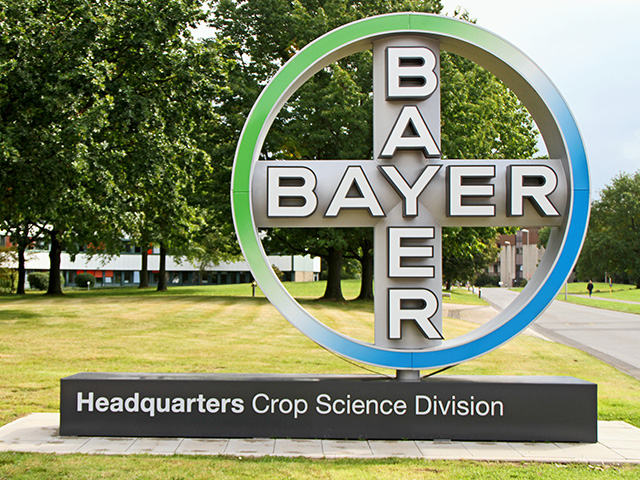Croplink
Bayer Settlements Address Legal Headaches
Bayer will dole out roughly $12 billion in an attempt to settle mounting litigation facing its portfolio of chemicals.
In June, the company agreed to a total payment between $8.8 and $9.6 billion to resolve both current and future litigation over Roundup, the glyphosate herbicide first marketed by Monsanto. Bayer inherited the legal issues when it purchased Monsanto in 2019. In recent years, the companies have faced lawsuits alleging glyphosate has caused cancer, particularly non-Hodgkin's lymphoma (NHL).
Bayer will also pay up to $400 million to resolve litigation pending in the U.S. District Court for the Eastern District of Missouri over claims of crop injury from Bayer's dicamba herbicide XtendiMax.
The settlement package will also direct about $820 million to address litigation on PCBs in water.
"Cash payments related to the settlements are expected to start in 2020," according to a company press release. "Bayer currently assumes that the potential cash outflow will not exceed $5 billion in 2020 and $5 billion in 2021; the remaining balance would be paid in 2022 or thereafter."
P[L1] D[0x0] M[300x250] OOP[F] ADUNIT[] T[]
GLYPHOSATE SETTLEMENT
By Bayer's estimates, the Roundup settlement will address about 75% of current Roundup lawsuits involving about 125,000 filed and unfiled claims.
It will also include an allowance to cover unresolved claims, as well as $1.25 billion to address "potential future litigation."
The settlement does not cover three recent California cases involving claims, which resulted in more than $2.2 billion in jury judgments against Bayer and are now under appeal.
To bring some scientific closure to the question of glyphosate's relationship to cancer, the settlement also establishes an "Independent Class Science Panel." This panel will determine whether glyphosate does cause NHL, and if so, at what levels of exposure.
This Roundup agreement is subject to approval by the U.S. District Court for the Northern District of California.
DICAMBA SETTLEMENT
Bayer has set aside $300 million to resolve multidistrict litigation concerning dicamba injury pending in the U.S. District Court for the Eastern District of Missouri. That settlement is also open to anyone else who claims to have suffered soybean yield losses from dicamba from 2015 through 2020.
Another $100 million will address legal costs associated with the litigation, as well as claims of non-soybean plant and crop injury from dicamba.
The Bader Farms dicamba lawsuit, which ended in a jury ordering Bayer and BASF to pay $325 million to a peach farm injured by dicamba, is not included in this settlement. Bayer has vowed to continue to fight that ruling.
The future use of dicamba herbicides over the top of dicamba-tolerant crops has been thrown into jeopardy recently after a Ninth Circuit ruling vacating the registrations of three of four OTT (over-the-top) dicamba herbicides, including XtendiMax, on June 3. All of the dicamba herbicides specific to the Xtend system must be reregistered by the EPA before use in the 2021 crop.
Lisa Safarian, regional head of North America for the Crop Science division of Bayer, says the company will continue to stand behind the herbicides. "We have quite a few products that are in the pipeline that are built off the glyphosate and the dicamba base," she says.
> Follow the latest from Pamela Smith, Crops Technology Editor, by visiting the Production Blogs at dtnpf.com or following her on Twitter @PamSmithDTN.
[PF_0820]
(c) Copyright 2020 DTN, LLC. All rights reserved.




